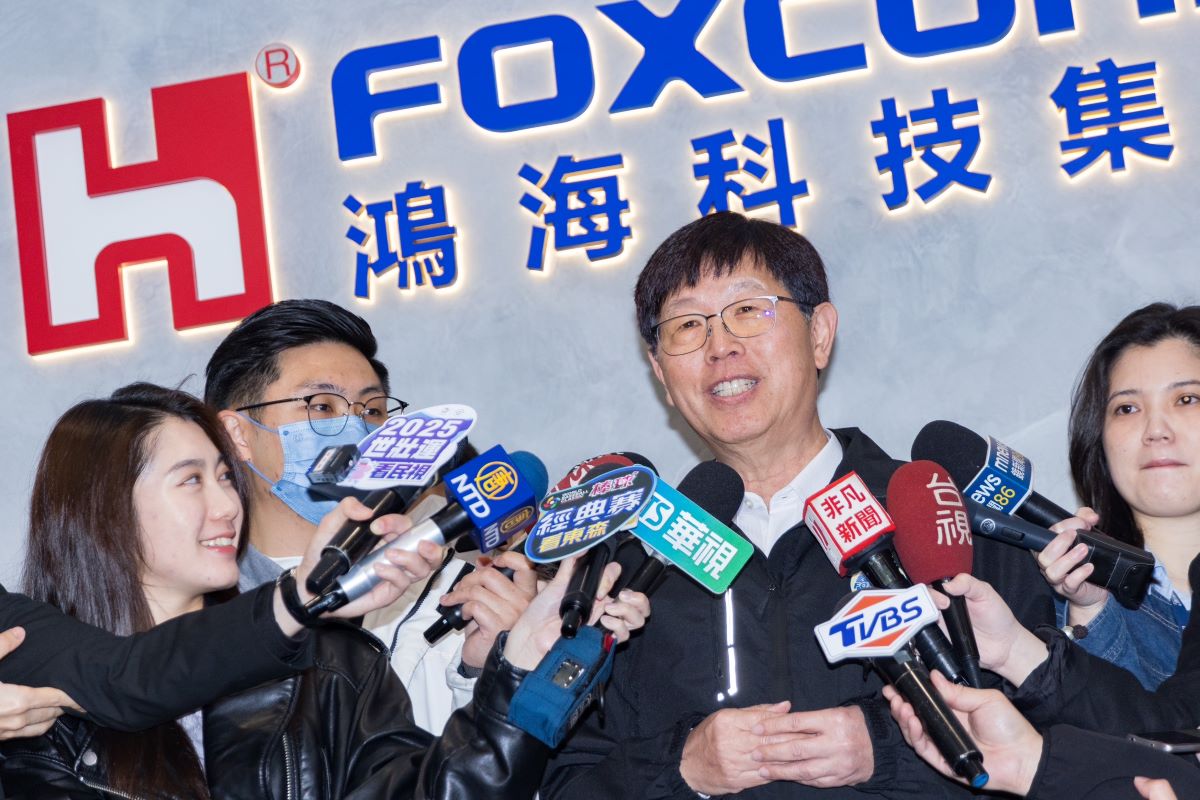深度求索(DeepSeek)的崛起顛覆了美國AI霸主的認知,更是對美國政府的嚴峻提醒,凸顯了美國在吸引與留住人才方面的挑戰,尤其是來自中國大陸的人才,DeepSeek關鍵工程師潘梓正(Zizheng Pan),原為輝達(Nvidia)實習生,後毅然決然回到中國大陸,政治學家、前國防計畫助理部長、哈佛大學教授艾利森(Graham Allison)感嘆,類似錢學森與潘梓正的案例一再上演。
Zizheng was one of our interns at NVIDIA back in summer 2023. Later, when we were considering to make him a FT offer, he chose to join DeepSeek without much hesitance. Back then, the DeepSeek multimodal team only has 3 people.
— Zhiding Yu (@ZhidingYu) January 27, 2025
I am still very much impressed by Zizheng’s decision… https://t.co/D6k6XGgvEn
潘梓正曾於輝達實習
潘梓正在輝達實習時的上級表示,他曾於2023年夏天時前往輝達實習,當時 輝達本有機會提供他正式職位,但他最終毫不猶豫地加入了北京的深度求索,當時該團隊僅有3名成員。這一決定令人印象深刻,因為他放棄了美國的機會,選擇成為深度求索的第4名員工。
2/ This week’s launch of China’s David to America’s Goliaths has upended much of what we thought we knew about American AI dominance—and taken a trillion dollars off the market value of US AI companies. It is also a vivid reminder of how seriously the US must take attracting and…
— Graham Allison (@GrahamTAllison) January 31, 2025
3/ Why did Zizheng Pan (@zizhpan)—the engineer who played a leading role in developing DeepSeek’s R1 model—invest his talents in creating this remarkable advance in China rather than here in the US? https://t.co/eWENM6pBQE
— Graham Allison (@GrahamTAllison) January 31, 2025
直到2023年10月,潘梓正仍在輝達加州聖塔克拉拉的辦公室工作,並同時在澳洲蒙納許大學(Monash University)攻讀博士,雖然他在美國有諸多機會,他最終卻選擇了一家不被看好的北京AI新創公司。
難伸拳腳
艾利森認為,為何潘梓正(Zizheng Pan)選擇深度求索,而非美國?作為DeepSeek-R1模型的關鍵開發者之一,潘梓正為何選擇將才華投回中國大陸,答案很簡單,美國科技公司未能給予他發展的機會。
5/ Until October 2023, Pan worked at @nvidia in Santa Clara while he was finishing his PhD at Monash University in Australia. Despite the opportunities here, he was attracted to become the fourth employee at an improbable start-up in Beijing named DeepSeek.
— Graham Allison (@GrahamTAllison) January 31, 2025
6/ DeepSeek’s fourth multimodal engineer Zizheng Pan (left) and DeepSeek’s founder Liang Wenfeng (right). pic.twitter.com/rud2qZ2o6Z
— Graham Allison (@GrahamTAllison) January 31, 2025
艾利森引述上週《華爾街日報》(WSJ)的一篇專欄文章,內容提到中國大陸的工程師總數是美國的9倍,且STEM(科學、技術、工程、數學)畢業生數量更是美國的15倍。這意味著,像潘梓正這樣的「超級人才」,未來可能會越來越趨向於選擇回到中國大陸,而非留在美國。
美國不是第一次錯失人才
艾利森感嘆,這也不是美國第一次失去關鍵科技人才。1955年時,中國籍、接受美國教育的航太工程師錢學森,因政治因素被迫離開美國,返回中國。
錢學森在1935至1955年間,與來自匈牙利的航太科學家 西奧多・馮・卡門(Theodore von Kármán) 共同創建了噴射推進實驗室(JPL),為美國的飛彈與太空技術奠定基礎。他也是波音X-20「動力滑翔機」(Dyna-Soar)計畫的主要設計者,後來成為美國太空梭(Space Shuttle)的前身。
7/ As George Gilder reminded us in a @WSJ opinion article this week, China’s pool of engineers is nine times larger than the US and has 15 times as many STEM graduates. https://t.co/kAtDsjhqTZ
— Graham Allison (@GrahamTAllison) January 31, 2025
8/ Zizheng is not the first super-talent that America has lost—nor will he be the last. In 1955, Chinese-born and US-educated aerospace engineer Qian Xuesen was forced to leave the US to return to China. pic.twitter.com/qL9EAQNV16
— Graham Allison (@GrahamTAllison) January 31, 2025
然而,由於美國國內的政治環境,錢學森被指控為共產黨間諜,儘管這一指控從未被證實,他仍遭到軟禁,被限制離開洛杉磯地區,最終於1955年被美國驅逐出境。
回到中國大陸後,錢學森受到了最高規格的禮遇,成為毛澤東「兩彈一星」計畫的領導者,讓中國大陸成為核武大國,並擁有可與美國匹敵的洲際飛彈。他的研究也為中國大陸今日的太空計畫奠定基礎,如今這個計畫成為SpaceX 之外,美國在太空領域的最大競爭對手。當他於2009年去世時,被中國大陸視為國家英雄。
艾利森認為,美國應優先留住科技人才,避免再失去更多「錢學森」與「潘梓正」,在全球競爭中,頂尖人才如錢學森、黃仁勳(Jensen Huang)、馬斯克(Elon Musk)等人,完全可以自由選擇在哪裡發展。美國若希望繼續保持科技領先地位,就必須積極吸引這些人才,並提供合適的環境,讓他們能夠發揮所長。
本文授權自中時新聞網,原文見此。











